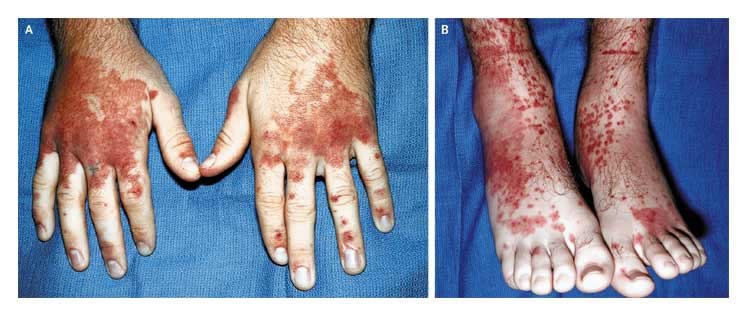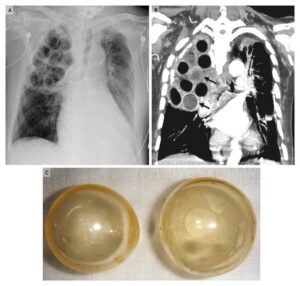This is an answer to the case – Patient with a 1-day history of fever, symmetric polyarthritis, abdominal pain, and hematemesis
A 20-year-old man was admitted to the hospital with a one-day history of fever and acute, painful symmetric polyarthritis that involved the wrists, elbows, and ankles.
During the next two days, edema and palpable purpura developed over the dorsal aspect of the hands and feet, as well as on the buttocks and legs. Severe abdominal pain with hematemesis developed, along with an increase in liver aminotransferase levels.
Henoch–Schönlein purpura was suspected. Computed tomographic scanning of the abdomen revealed edema of the small intestine, a finding consistent with the presence of intestinal vasculitis.
Examination of a biopsy specimen of a skin lesion revealed leukocytoclastic vasculitis without IgA deposition. The serum IgA level was normal. The serum creatinine level and the results of urinalysis were also normal. Blood cultures were sterile, and multiple immunologic studies were negative.
The patient remained febrile for approximately five days without further progression of his skin lesions. His condition improved with supportive care, and he was doing well at follow-up two months after the onset of his illness.
Henoch-Schönlein purpura is an acute immunoglobulin A (IgA)-mediated leukocytoclastic vasculitis associated with cutaneous purpura, arthritis, abdominal pain, gastrointestinal bleeding, orchitis, and nephritis.


